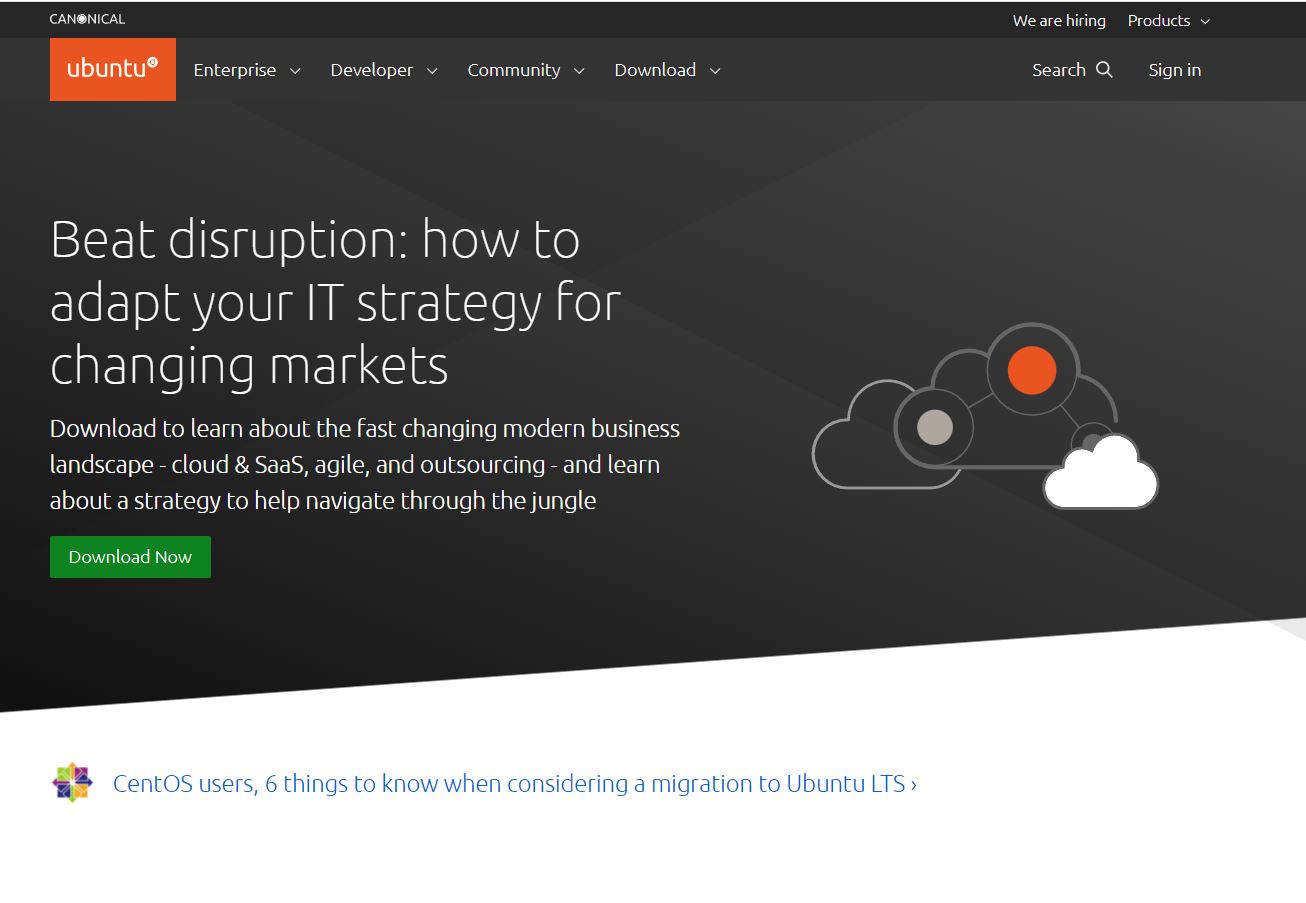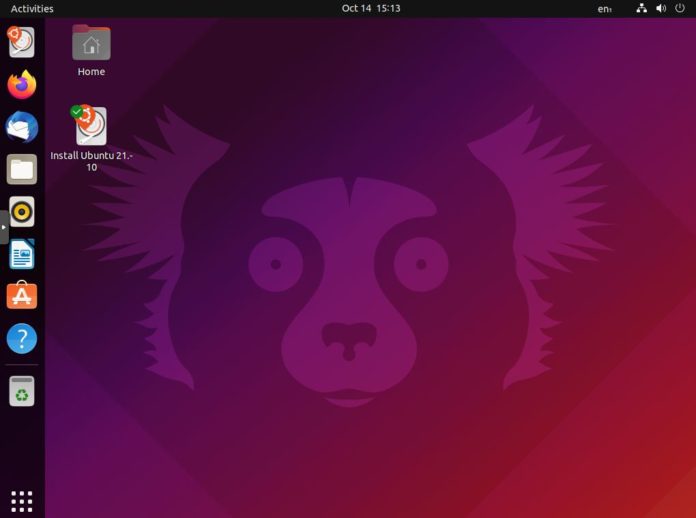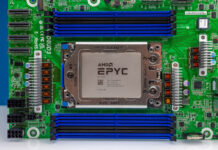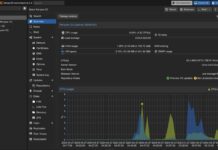Ubuntu is a very popular Linux distribution, so whenever we get an updated distribution, it is a big deal in the industry. Today, we have Ubuntu 21.10 (21 is for 2021, and 10 is for October.) This is not a LTS or long-term support release, but it does bring a number of new changes.
Ubuntu 21.10 Impish Indri Released
This release brings the new Linux 5.13 kernel and support for new hardware like the Intel Alder Lake as well as the AMD MI200 GPU (Aldebaran.) There are also some cool features such as the ability to support Apple M1 devices, so if you have an Apple Mac Mini M1, get ready.
There are also some big platform-level updates. A great example is the OpenStack Xena integration. We just covered the OpenStack Xena release where the user survey saw a >60% increase year/ year in deployed cores. For the Raspberry Pi, cloud-init now works more reliably over wired Ethernet and WiFi and there is support for the Sense HAT.

One other fun note here is that Canonical, the company behind Ubuntu, is actively courting CentOS users on the Ubuntu front page after Red Hat went full IBM and said farewell to CentOS. Large segments of CentOS users will need to re-platform, although most likely to a LTS release. Still, kudos to them for extending an olive branch to those hit by the CentOS retirement.
Final Words
This is not going to be the most groundbreaking set of changes ever. That is OK, this is also a minor release. For STH readers, we just want to quickly note that the next release, the Ubuntu 22.04 will be a LTS release given a two-year cadence (Ubuntu 16.04, 18.04, 20.04 and so forth.) That means Ubuntu 21.10 release will be relatively short-lived in terms of support. Still, it is great to see Ubuntu and its massive community get an upgrade.
Since we know many just want to see the server changes, given this is STH, we have the changelog below for Ubuntu 21.10.
Ubuntu 21.10 Server Changes
Here is the official Ubuntu 21.10 Changelog:
OpenLDAP has been updated to 2.5.6
- A new OpenLDAP release, version 2.5.6, is available for Ubuntu Impish users. This release brings several changes, new features and deprecations/removals. A non-exhaustive list of things to be aware of during the upgrade process is:
- The shell (
slapd-shell), the BDB and the HDB backends have all been removed. - The
ppolicymodule now provides its own built-in schema. The externalppolicyschema has been removed. - The
nssovmodule has been removed
- The shell (
- In certain situations, it is possible that the post-installation scripts will not be able to successfully migrate your current installation to new formats (e.g., when you are using an old backend like BDB/HDB). If this happens, you will be notified about the failure and the
slapdserver will not be (re)started; you will then have to take manual action in order to migrate your data and start the service. Please look at the README.Debian file (under/usr/share/doc/slapd/) for more information.
Telegraf has been updated to 1.19.2
- This new version of Telegraf introduces some new features. It supports more SNMP v3 authentication protocols (including SHA-512); it also adds support for DataDog distributions 3 metric type.
PHP now defaults to version 8.0.8
- Ubuntu has transitioned to the PHP 8 runtime language 3, and updated the wider PHP ecosystem in Ubuntu 21.10 to use this version. New features include the JIT compiler, union types, attributes, and more.
- Users of PHP 7.4 should note that version 8.0 removes a number of deprecated functionalities 14 and when upgrading should be prepared to make the appropriate changes to their applications.
Apache has been updated to 2.4.48
- Adds SSL related inquiry functions to the server API, to ease the identification and loading of the right SSL modules.
- Adds OCSP response provisioning as a core feature, allowing
mod_mdandmod_sslto exchange X.509 digital certificate data with each other.
QEMU was updated to the 6.0 release.
- This version adds the
ESextension to AMD SEV which adds guest register state to the protected assets. - Furthermore in regard to emulation RISC-V got many improvements and ARMv8.1M as well as several ARM extensions were added.
- The emulated NVMe controller is now compliant with NVMe version 1.4 and added subsystems, multipath and namespace sharing.
- See the upstream changelog for 6.0 8 for an overview of the many improvements and also a list of suggested replacement functionality for removed features and incompatible changes.
Libvirt has been updated to version 7.6
virtio-pmem<memory/>model.- Sharing and hot-plugging of
<transient/>disks with QEMU. - More configurability for
virtiofsuse cases allowing an externalvirtiofsd. - Older Hypervisor targets are no more supported dropping code for QEMU releases older than 2.11 and Xen releases older than 4.9.
- Specifying
s390-pvas launch security type in an s390 domain prepares for running the guest in protected virtualization secure mode. - See the upstream Changelogs 4 for the many further improvements and fixes since version 7.0 that was in Ubuntu 21.04 1.
Open vSwitch has been updated to 2.16
- Removed support for 1024-bit Diffie-Hellman key exchange, which is now considered unsafe
- OVSDB Introduced new database service model named
relay. Targeted to scale out read-mostly access (ovn-controller) to existing databases. - Linux datapath:
ovs-vswitchdwill configure the kernel module using per-cpu dispatch mode (if available). This changes the way upcalls are delivered to user space in order to resolve a number of issues with per-vport dispatch. - Further changes and improvements can be found in the upstream changelog 1.
Chrony has been updated to version 4.1
- The more secure NTS 4 feature that was added in 4.0 in Ubuntu 21.04 now got various enhancements in regard to configure certificates.
- More details of what changed since version 4.0 can be found in the upstream news page 4.
Bind9 has been updated to 9.16.15
- Ubuntu Impish’s BIND9 software received a major update since hirsute’s 9.16.8 1, which includes performance improvements for zone queries, and better control over purging old keys and stale data.
- Of note, BIND9 now prefers the SPNEGO implementation from the system GSSAPI library rather than the prior ISC implementation.
Containerd has been updated to version 1.5.5
- In this new version the support for the Node Resource Interface (NRI) was added, and it also has changes which may affect projects that import containerd. For instance, the CRI plugin moved into the main repository, and there are some API changes in the OCI library.
- More details about what changed since the former version 1.4.x can be found in the upstream release page 3 .
Runc has been updated to version 1.0.1
- This is the first stable release of runc to be shipped in Ubuntu. As a consequence of this version update, there are some changes to the libcontainer API that break compatibility with older versions of the library.
- There are also a bunch of performance improvements and bug fixes. More details about what changed since the last Ubuntu release can be found in the upstream release page 1.
Corosync has been updated to version 3.1.2
- In this version, the default corosync configuration does not set the node name to
node1as in the last Ubuntu release, instead it uses the output ofuname -ncommand. If you want to keep the old behavior, check the configuration file and uncomment the needed lines.
Fence-agents has been split into curated and non-curated agents
- There is no new upstream version in this Ubuntu release, however, the
fence-agentspackage was split intofence-agents-base(curated agents) andfence-agents-extra(non-curated agents), and nowfence-agentsis a metapackage which installs all the agents. A curated agent means that the Ubuntu Server team has been validating it in a Continuous Integration system. - For more information about the curated agents check the Ubuntu Server guide 4.
Resource-agents has been split into curated and non-curated agents
- There is no new upstream version in this Ubuntu release, however, the
resource-agentspackage was split intoresource-agents-base(curated agents) andresource-agents-extra(non-curated agents), and nowresource-agentsis a metapackage which installs all the agents. A curated agent means that the Ubuntu Server team has been validating it in a Continuous Integration system. - For more information about the curated agents check the Ubuntu Server guide 1.
(Source: Ubuntu Discourse)





Even for a non-stable version, this should never have been released with the following bug :
https://discourse.ubuntu.com/t/impish-indri-release-notes/21951
Linux kernel
The version of the ZFS driver included in the 5.13.0-19 kernel contains a bug 122 that can result in filesystem corruption. Users of ZFS are advised to wait until the first Stable Release Update of the kernel in 21.10 before upgrading.